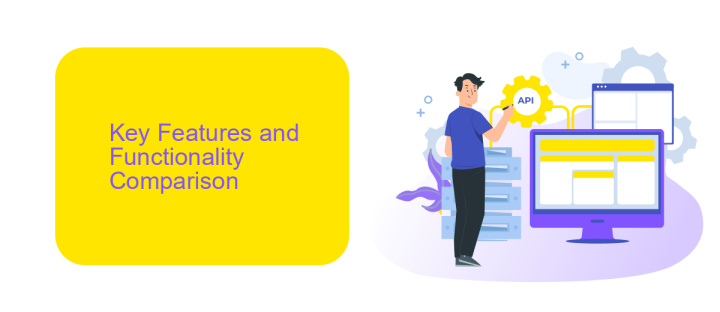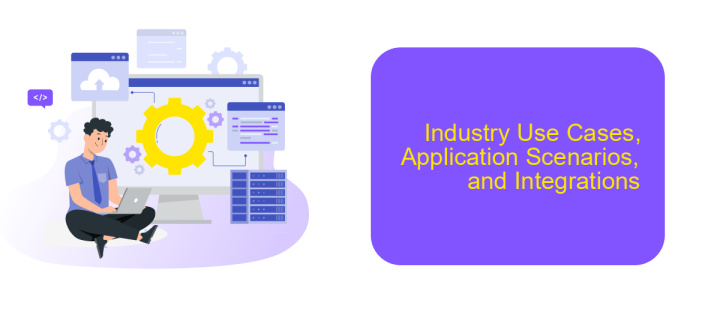Kryon Vs UiPath
In the rapidly evolving landscape of robotic process automation (RPA), Kryon and UiPath stand out as leading contenders. Both platforms offer unique features and capabilities designed to streamline business processes and enhance productivity. This article delves into a comparative analysis of Kryon and UiPath, exploring their strengths, weaknesses, and the specific scenarios where each excels.
Overview: Kryon and UiPath Robotic Process Automation (RPA) Platforms
Kryon and UiPath are leading platforms in the Robotic Process Automation (RPA) industry, each offering unique features to streamline business processes. Kryon is known for its full-cycle automation suite, which includes process discovery, analytics, and RPA capabilities. UiPath, on the other hand, excels in providing a comprehensive and scalable RPA solution with a strong focus on ease of use and community support.
- Kryon: Offers a hybrid approach combining attended and unattended automation, process discovery tools, and advanced analytics.
- UiPath: Provides a user-friendly interface, extensive integration capabilities, and a large community for support and development.
Both platforms are designed to enhance operational efficiency and reduce manual workload. For seamless integration with various applications and services, tools like ApiX-Drive can be invaluable. ApiX-Drive simplifies the process of connecting different software systems, enabling businesses to automate workflows without extensive coding knowledge. This makes it easier to leverage the full potential of RPA solutions like Kryon and UiPath.
Key Features and Functionality Comparison

Kryon and UiPath are two leading platforms in the Robotic Process Automation (RPA) industry, each offering unique features and capabilities. Kryon is known for its intuitive process discovery tools, which allow businesses to identify automation opportunities quickly. Its hybrid automation capabilities enable seamless integration of attended and unattended robots, providing flexibility in automating diverse tasks. Kryon's user-friendly interface and robust analytics offer comprehensive insights, helping organizations optimize their automation strategies effectively.
UiPath, on the other hand, excels with its extensive range of pre-built automation components and strong community support. Its advanced AI and machine learning capabilities facilitate intelligent automation, making it suitable for complex processes. UiPath's platform is highly scalable, accommodating growing business needs efficiently. Additionally, UiPath offers seamless integration with various third-party applications and services, including ApiX-Drive, which simplifies the process of connecting and automating workflows across different systems, enhancing overall productivity and operational efficiency.
Benefits and Drawbacks of Each Platform

When evaluating Kryon and UiPath, it's essential to consider the benefits and drawbacks of each platform to determine which best suits your needs.
1. Kryon:
- Benefits: Kryon offers strong process discovery capabilities, making it easier to identify automation opportunities. Its user-friendly interface and real-time analytics provide valuable insights.
- Drawbacks: Kryon's integration options are somewhat limited compared to UiPath. Additionally, Kryon's market presence is smaller, which could impact community support and resources.
2. UiPath:
- Benefits: UiPath boasts extensive integration capabilities, including seamless integration with services like ApiX-Drive, which simplifies the automation of complex workflows. Its large user community and comprehensive training resources are significant advantages.
- Drawbacks: UiPath can be more complex to set up and may require a steeper learning curve for new users. Additionally, its licensing costs can be higher than Kryon's, which might be a consideration for budget-conscious organizations.
Ultimately, both platforms have their unique strengths and weaknesses. Kryon excels in process discovery and ease of use, while UiPath offers superior integration capabilities and community support. Your choice will depend on your specific requirements and priorities.
Industry Use Cases, Application Scenarios, and Integrations

Both Kryon and UiPath offer robust solutions for various industry use cases. In manufacturing, these platforms streamline supply chain operations, automate quality control, and manage inventory. In the financial sector, they enhance compliance, automate transaction processing, and improve customer service through chatbots and data analysis.
In healthcare, Kryon and UiPath automate patient record management, billing processes, and appointment scheduling. Retailers benefit from automated inventory management, personalized marketing campaigns, and customer service improvements. Additionally, these tools are invaluable in human resources for automating onboarding, payroll, and employee data management.
- Manufacturing: Supply chain operations, quality control, inventory management
- Finance: Compliance, transaction processing, customer service
- Healthcare: Patient records, billing, appointment scheduling
- Retail: Inventory management, marketing, customer service
- Human Resources: Onboarding, payroll, data management
Integrating these RPA solutions with existing systems can be complex, but services like ApiX-Drive simplify the process. ApiX-Drive offers seamless integration capabilities, allowing businesses to connect Kryon and UiPath with various applications, ensuring smooth data flow and enhanced operational efficiency.
Future Trends and Innovations in the RPA Landscape
As the RPA landscape continues to evolve, future trends are leaning towards more sophisticated AI and machine learning integrations. These advancements will enable RPA tools like Kryon and UiPath to handle more complex tasks, making them more efficient and versatile. Businesses will increasingly rely on RPA for end-to-end automation, going beyond simple repetitive tasks to more intricate processes involving decision-making and data analysis.
Innovations in the RPA field are also focusing on enhanced interoperability and seamless integrations with various systems and applications. Services like ApiX-Drive are becoming essential, as they facilitate the integration of multiple platforms, allowing for a more cohesive and streamlined workflow. By leveraging such tools, businesses can achieve higher levels of automation efficiency, ensuring that their RPA solutions are not only effective but also adaptable to future technological advancements.
FAQ
What are the main differences between Kryon and UiPath?
Which tool is better for small businesses?
How does the pricing compare between Kryon and UiPath?
Can both tools integrate with other software systems?
Which tool offers better customer support?
Time is the most valuable resource in today's business realities. By eliminating the routine from work processes, you will get more opportunities to implement the most daring plans and ideas. Choose – you can continue to waste time, money and nerves on inefficient solutions, or you can use ApiX-Drive, automating work processes and achieving results with minimal investment of money, effort and human resources.

